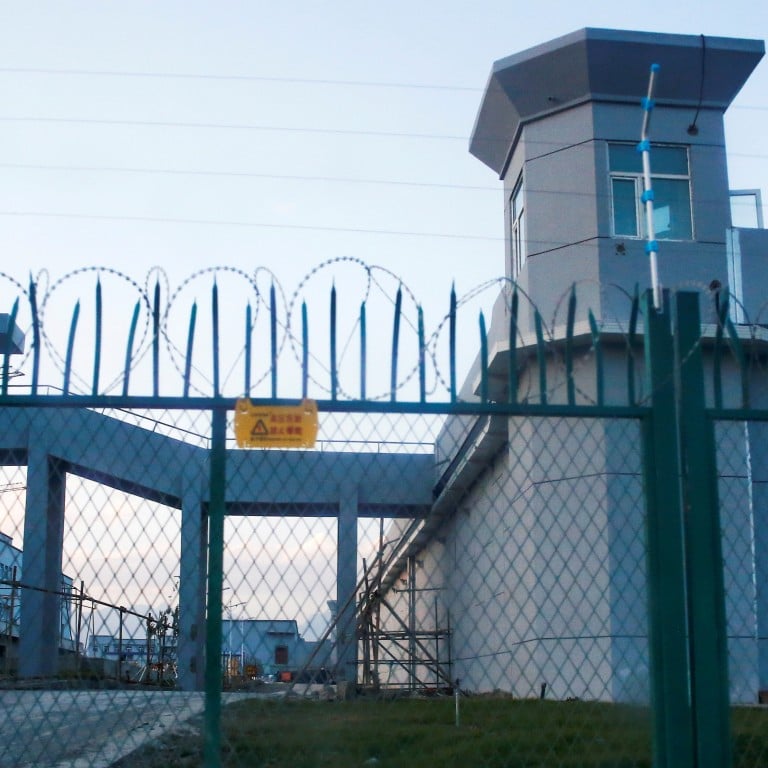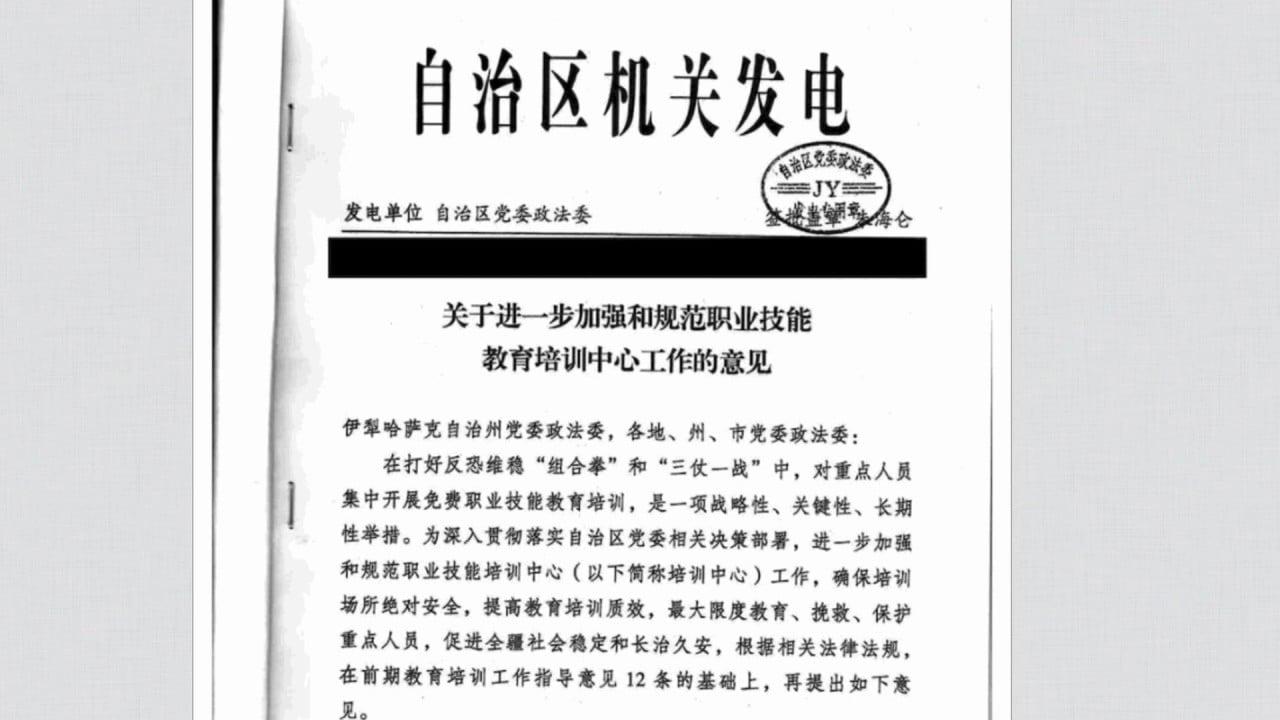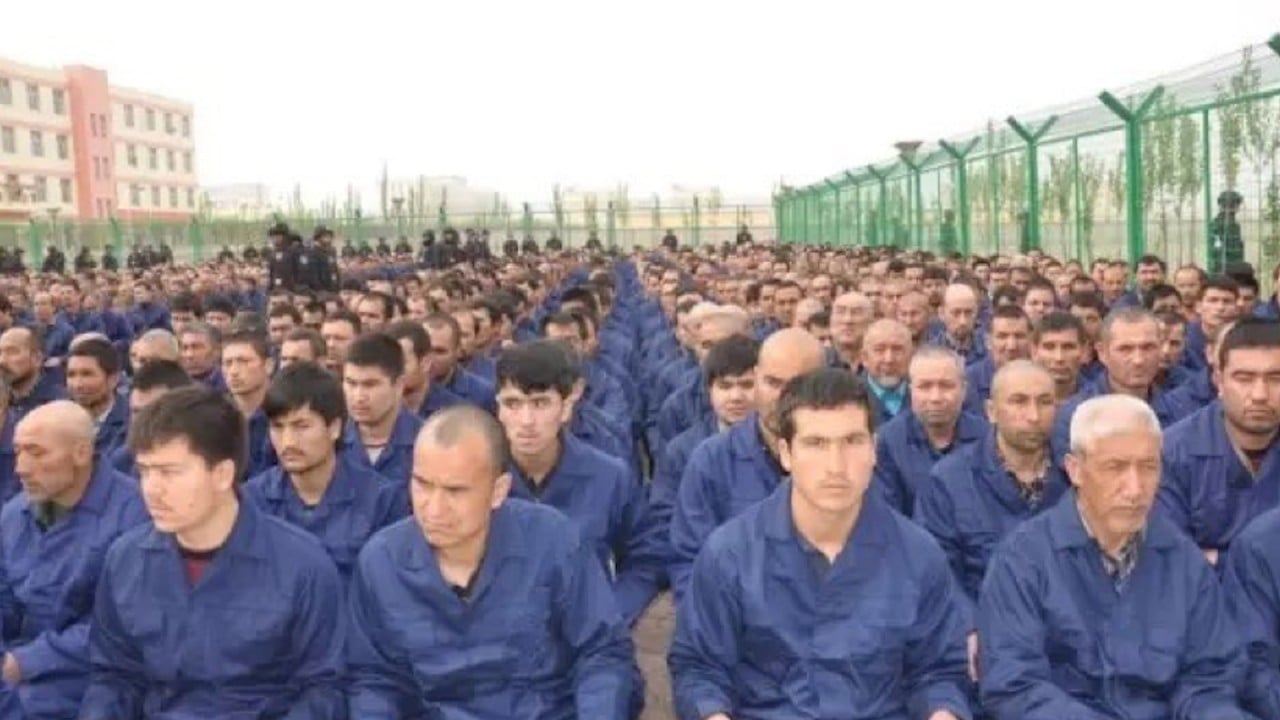
China sanctions British MPs, lawyers, businesses for Xinjiang ‘disinformation’
- Chinese foreign ministry says sanctions are in retaliation to British sanctions on China over human rights issues in Xinjiang
- It says Britons ‘maliciously spread lies and disinformation’ about Xinjiang, where China has been accused of genocide and forced labour
The ministry said the British sanctions were against international rules, interfered with its internal affairs and undermined bilateral relations, and it summoned Caroline Wilson, the British ambassador to China, to protest.
British Foreign Secretary Dominic Raab slammed the sanctions, saying that if “Beijing wants to credibly rebut claims of human rights abuses in Xinjiang, it should allow the UN High Commissioner for Human Rights full access to verify the truth”.

02:38
Global brands face backlash in China for rejecting Xinjiang cotton
China’s sanctions targeted lawmakers, lawyers and businesses, including members of parliament Iain Duncan Smith, Tom Tugendhat, Neil O’Brien, Tim Loughton and former transport minister Nusrat Ghani. Tugendhat and O’Brien lead the China Research Group, a hawkish group – also sanctioned – of Conservative lawmakers pushing the British government to take a harder line on China.
Duncan Smith is perhaps the biggest name listed. A former Conservative Party leader when in opposition, he is one of the founding members of the Inter Parliamentary Alliance on China (IPAC), a hardline group that has been introducing anti-China legislation in parliaments around the world.
Also sanctioned were barrister Geoffrey Nice, China academic Joanne Smith Finley, the Conservative Party Human Rights Commission, the Uygur Tribunal – an independent body investigating China’s alleged crimes against humanity – and Essex Court Chambers, which employs four lawyers who authored a legal opinion concluding China had committed genocide in Xinjiang.
The people named and their immediate relatives have been banned from entering China, including Hong Kong and Macau. Their assets in China would be frozen, and Chinese citizens and organisations would be forbidden from dealings with them, the ministry said.

03:47
Leaked state documents describe repressive operations at China’s detention camps in Xinjiang
“China is firmly determined to safeguard its national sovereignty, security and development interests, and warns the UK side not to go further down the wrong path. Otherwise, China will resolutely make further reactions,” the ministry said.
But it took Beijing just two hours to retaliate for Brussels’ sanctions – the suggestion among diplomats being that while the EU’s plans were well known to China, the other three coordinating parties had managed to keep theirs under wraps.
“A huge amount of work goes into sanctioning any one individual, so these were being worked on among allies for some time,” one diplomat said.
Some of those who appeared on China’s retaliatory list said they were “proud”.

01:09
China claims most Muslim detainees have left Xinjiang re-education camps and returned to society
“Very proud tonight that one organisation I co-founded [Conservative Party Human Rights Commission] has been sanctioned by the Chinese Communist Party regime, and another one that I co-founded [Hong Kong Watch] has two of its patrons on the sanctions list,” British campaigner Benedict Rogers tweeted.
In a statement, Hong Kong Watch – a campaign group of which Alton and Nice are patrons – said the sanctioning “formally marks the end of so-called ‘golden era’ of relations between the UK and China”.
“As British parliamentarians, QCs and even the Conservative Party’s Human Rights Commission are now on a Chinese sanctions list, the time has come to ask why none of the officials and entities responsible for the crackdown in Hong Kong have been sanctioned,” the statement read.
Smith Finley, reader in Chinese Studies at Newcastle University, tweeted: “It seems I am to be sanctioned by the PRC (Chinese) government for speaking the truth about the Uygur tragedy in Xinjiang, and for having a conscience. Well, so be it. I have no regrets for speaking out, and I will not be silenced.”
Xinjiang cotton boycott pushes Tencent to cut ties with Burberry
In Europe, where officials have had the working week to consider Beijing’s sanctioning of officials including five members of the parliament and every EU member state’s ambassadors to Brussels, appetite to respond is growing.
There is also growing sentiment that the EU’s investment deal with China is in on the rocks. In Brussels last night, after a meeting with EU heads of state and government, European Parliament President David Sassoli said China had made “a huge mistake”.
“The European Parliament is not a punching ball that you can just wave a finger at or punch in the face,” he said. “We need to have a hard stance. We need to be up to the task.”


